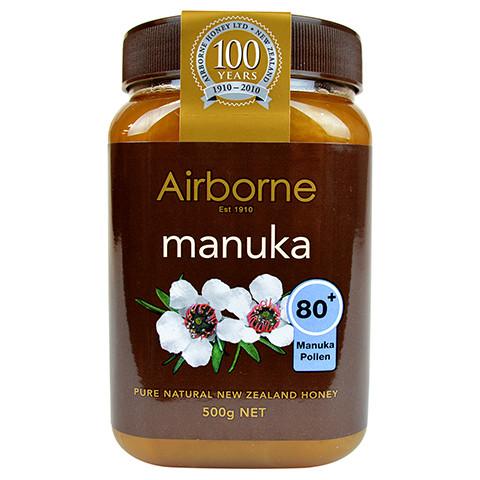Company is accused of adding synthetic chemicals, including one used in tanning lotion, to honey
A mānuka honey company is being prosecuted by New Zealand’s food safety agency over claims it added artificial chemicals to its product.
In the first case of its kind, the company is accused of adding synthetic chemicals – including one commonly used in tanning lotion – to honey it sold as “mānuka”.
A total of 18 products made by Evergreen Life Ltd were recalled in 2016, after New Zealand’s Ministry for Primary Industries (MPI) announced they might contain “non-approved substances”.
Now the Auckland-based health company is being prosecuted by New Zealand Food Safety on 64 charges of alleged adulteration of honey with artificial chemicals.
The most serious charges carry maximum penalties of five years’ imprisonment or a NZ$500,000 (£265,000) fine. The company is expected to contest the allegations.
Details of exactly which products the company is accused of tampering with are expected to emerge during the court case, which is scheduled for a hearing next month.
Evergreen’s website says it sells health products internationally to countries including the United States, Australia, Canada, Singapore, Korea, Hong Kong, Malaysia, Indonesia and China.
Mānuka honey is made from the nectar of the mānuka bush flower. Known as “liquid gold” because it sells for up to NZ$500 a jar, the honey has particular antibacterial properties and is thought to have health benefits.
It is increasingly important to New Zealand’s economy, with the total value of honey exports increasing five-fold to NZ$348m in the decade to 2018 as a result of the mānuka “gold rush”.
But rumours are rife of a global “fake” mānuka honey problem and the latest figures suggest up to half of honey sold as mānuka worldwide is not genuine.
With New Zealand staking its international reputation on the quality of its produce, the government is keen to crack down on anyone caught undermining mānuka honey’s image.
But artificial DHA is not designed to be added to food and so does not undergo the necessary safety tests to ensure it is food grade. The chemical is normally used in fake-tan lotions as the active ingredient that makes skin turn an orangey-brown colour.
Scientists can differentiate between artificial and naturally occurring DHA and MGO, but the test is expensive and not routinely carried out.
Last year, the MPI introduced a new definition of mānuka honey which means it must be independently proven to contain chemical and DNA markers unique to the mānuka plant before it can be exported.
Bryan Wilson, the head of New Zealand Food Safety, said in a statement: “New Zealand Food Safety is prosecuting Evergreen Life Ltd and its manager for alleged adulteration of honey with synthetic MGO and DHA.
“There are a total of 64 charges – the most serious carrying maximum penalties of five years’ imprisonment or $500,000 fine in the case of a body corporate.”
A hearing in the case will take place on 14 February.
Evergreen Life has been approached for comment.
The charges in the flagship case against Evergreen Life Ltd relate to the alleged addition of two artificial chemicals, methylglyoxal (MGO) and dihydroxyacetone (DHA), to honey.
Both chemicals occur naturally in an organic form in mānuka honey, because DHA comes from the mānuka flower and converts within the honey into MGO – the chemical which gives it its highly prized antibacterial properties.
The more DHA in the honey, the more MGO it will create. So by adding artificial DHA, manufacturers can appear to increase the strength of weak mānuka honey and sell it for a higher price.
Researchers have also found adding synthetic DHA to ordinary honey changes its colour, taste and makes it perform like genuine mānuka honey in tests.
But artificial DHA is not designed to be added to food and so does not undergo the necessary safety tests to ensure it is food grade. The chemical is normally used in fake-tan lotions as the active ingredient that makes skin turn an orangey-brown colour.
Scientists can differentiate between artificial and naturally occurring DHA and MGO, but the test is expensive and not routinely carried out.
Last year, the MPI introduced a new definition of mānuka honey which means it must be independently proven to contain chemical and DNA markers unique to the mānuka plant before it can be exported.
Bryan Wilson, the head of New Zealand Food Safety, said in a statement: “New Zealand Food Safety is prosecuting Evergreen Life Ltd and its manager for alleged adulteration of honey with synthetic MGO and DHA.
“There are a total of 64 charges – the most serious carrying maximum penalties of five years’ imprisonment or $500,000 fine in the case of a body corporate.”
A hearing in the case will take place on 14 February.
Evergreen Life has been approached for comment.


